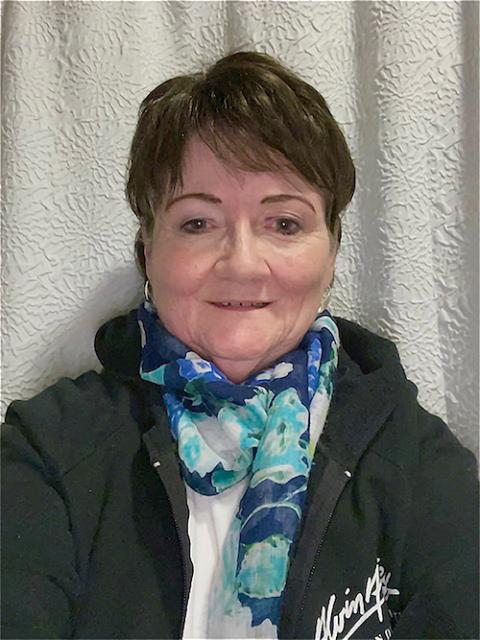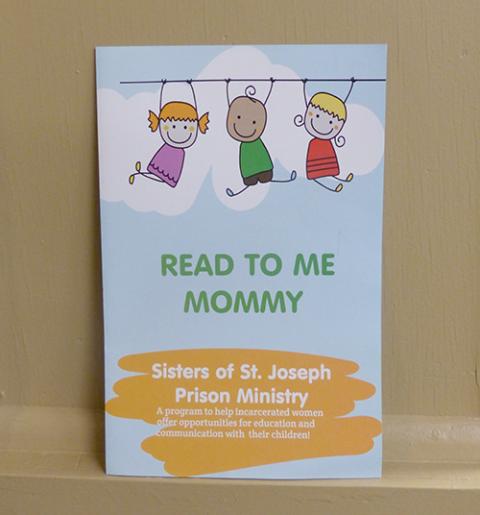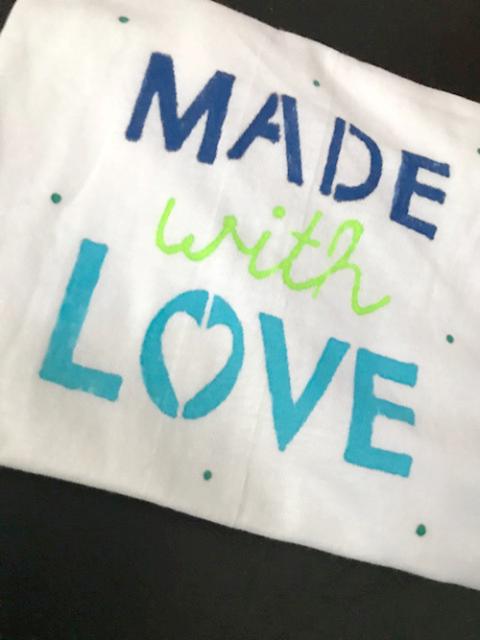When people hear a prison cell door close behind them, they likely feel little hope for their future.
But when prison chaplain Sr. Maureen Clark of the Sisters of St. Joseph looks behind those bars, she sees nothing but strength and opportunity.
"It is expected of me by God to do all I can to help affect change, offer love, make known to others the need and bring hope in the midst of great suffering," said Clark, who has ministered for 34 years at Massachusetts Correctional Institution-Framingham (MCI-Framingham), a medium-security prison for female and male offenders in Framingham, Massachusetts.

Sr. Maureen Clark, a member of the Sisters of St. Joseph, has ministered for 34 years at Massachusetts Correctional Institution-Framingham in Framingham, Massachusetts. (Courtesy of Sisters of St. Joseph of Baden)
Clark channels this philosophy through the many programs she's established to improve and enrich offenders' lives. These include initiatives to help the incarcerated overcome substance abuse and trauma, as well as guide them in re-entering society after their release. The Read to Me Mommy program she created — which films incarcerated women reading books for their children and grandchildren to watch — has been implemented on a national level.
Above all, Clark offers kind words and spiritual guidance to incarcerated individuals she finds hungry for it.
"My community has a history of trying to serve where there is the greatest need and where others choose not to go," said Clark, who personally trains scores of volunteers for her programs. "The question for me was, 'Why not? Why not go where you are most needed?' "
Her unflappable commitment proved life-changing for previously incarcerated woman Nancy Wagner. Clark connected her with the Innocence Project, leading to Wagner's murder conviction being overturned and her release after more than 30 years in prison.
"I felt like Sister Maureen took me under her wing, and she was very positive and encouraging. She wouldn't let me give up," Wagner said. "If not for her, I'd probably still be sitting in MCI-Framingham."
Clark provided constant support throughout her decades of incarceration, Wagner said, even tutoring her for her GED and empowering her to recover from substance abuse.
Clark continues to lift Wagner's spirits today as she struggles with being denied work and housing because of her prison record despite being found innocent.
"(Clark) is non-judgmental, and she cares about people. She's like my best friend," Wagner said. "She just really has faith, and she believes in what she does."
Advertisement
Global Sisters Report: What inspired you to pursue prison ministry?
Clark: I was invited by another sister in the community to join her in prison ministry.
It surely did not sound appealing. That was because I viewed that work as the media portrays people in prison. Once inside, I saw people who couldn't afford a lawyer and were struggling to feed their children, put food on the table, afford housing, figure out ways to remove themselves from situations of abuse and face their addictions to drugs and alcohol. They longed to see the possibility of a new life. Once I went inside and found people like you and me, not as the media portrayed, I was stunned.
God grabbed my heart and clearly placed me in this ministry. I have had not one regret nor one doubt.
Why is it important to minister to the incarcerated?
Because it is a population that has been neglected on the world stage. Misjudged, they have been physically, psychologically and sexually abused as children. Who helped them during those years of childhood? No one. Now they are adults, still suffering from what wasn't healed as a child, acting out and making poor life decisions. They are coming from extremely difficult situations.
Can you discuss your many efforts at MCI-Framington?
I try to keep a connection with (incarcerated) women and their children with the Read to Me Mommy program. I try to expand people's ability to heal with good information from the Houses of Healing program, which is emotional, psychological and spiritual healing. Spiritually, of course, we have liturgies, one-to-one spiritual direction [and] any spiritual program you can imagine. We have retreats (in the gym) that focus on Christianity. The incarcerated love the retreats. The participants say the best part of the retreat is it feels like they're not in prison. The space is transformed by music, prayer, caring volunteers and rich sharing.
We have created some fun opportunities to learn the power of God's word, (like) three times performing selections from the musical "Godspell."

St. Joseph Sr. Maureen Clark created the Read to Me Mommy program, which films incarcerated women reading books for their children and grandchildren to watch. (Courtesy of Sisters of St. Joseph of Baden)
How and why do you help the incarcerated in overcoming substance abuse?
The majority of people in prison suffer from substance abuse. It's a dual diagnosis of substance abuse and mental health issues, and so if you want to help people, you have to deal with what they're dealing with. I provide for volunteers to come in and lead recovery groups. (The volunteers) are all in recovery themselves, so they've been walking this walk for many years.
What motivated you to create the Sisters of St. Joseph Ministry Aftercare Visitors program, which partners volunteers with incarcerated individuals to help them transition back into society after their release?
One of the biggest things about getting out of prison is they are and feel so alone. Sad to say, they've cut off a lot of their contacts. They've offended people — their parents and friends, so those people aren't waiting for them to come out. Nobody's waiting. That's what we do. We put a person in their life waiting for them, who will come out to say, "This is a new time, this is a new life. I'll walk with you and talk with you." It's somebody to help them make decisions, somebody they can call and someone to go out to dinner with.
This is the 29th year of the Aftercare program. We've worked with a large number of people exiting prison, and nearly all are doing well and are not returning to prison.
You've arranged for guest speakers to inspire the prisoners, including Mother Teresa. What was it like to meet her?
Meeting Mother Teresa was powerful. As witnessed by this world, she appeared very shy and quiet. Yet her depth of love, wisdom, knowledge of God and desire to please God by service made her a giant in our eyes. The message she brought was about seeking God, not wasting time and realizing that no matter where you reside, God is with us.
You've organized for the incarcerated to create decorative shirts for children in need across Hawaii, Florida and Ukraine. How does this benefit the incarcerated?
They feel so bad about being in prison. They want to make things right and do something positive. They don't see all of their life as their crime. That's not the whole of them.
You helped Nancy Wagner earn her GED, overcome substance abuse and overturn her prison sentence. Can you describe what it was like working with her?
Nancy was shy and frightened and just trying to do her time. There is a difference in doing time. You learn to do the time, or the time does you. Nancy, like most, had no idea how to manage being in prison. Her wanting something good to happen and her openness to dare to venture forward no matter how hard it was made all the difference. She listened to suggestions. She showed up. In showing up, she was surprised that she had abilities and could become stronger in her self-knowledge, intelligence, life skills and faith.
What led you to connect her with the Innocence Project?
I connected Nancy with the Innocence Project in the hope that they could help her. Once they sat with her and looked at her case, they believed that they could help her. They did extensive work, and it proved to be a positive move.
I can't put into words how happy I am for her. She worked so hard on herself, and she left prison in many ways not institutionalized.
What inspired you to become a sister?
I attended St. Titus Catholic School and St. Veronica High School (in Pittsburgh). I had the Sisters of St Joseph from first through 12th grade. I had a heartfelt desire early on to seek to know God more. It seemed like joining the community of others who shared the same desire and having the backing of my family was a good fit.
What keeps you inspired and motivated to help the incarcerated?
I have met such wonderful people. And I'm so pleased when they can grab hold of their lives and begin again with support, resources and friends who will walk with them into the next steps of their journey. I'd be lying if I pretended that (all) days have been easy. They have never been easy, but I have never been alone. God is with me.








